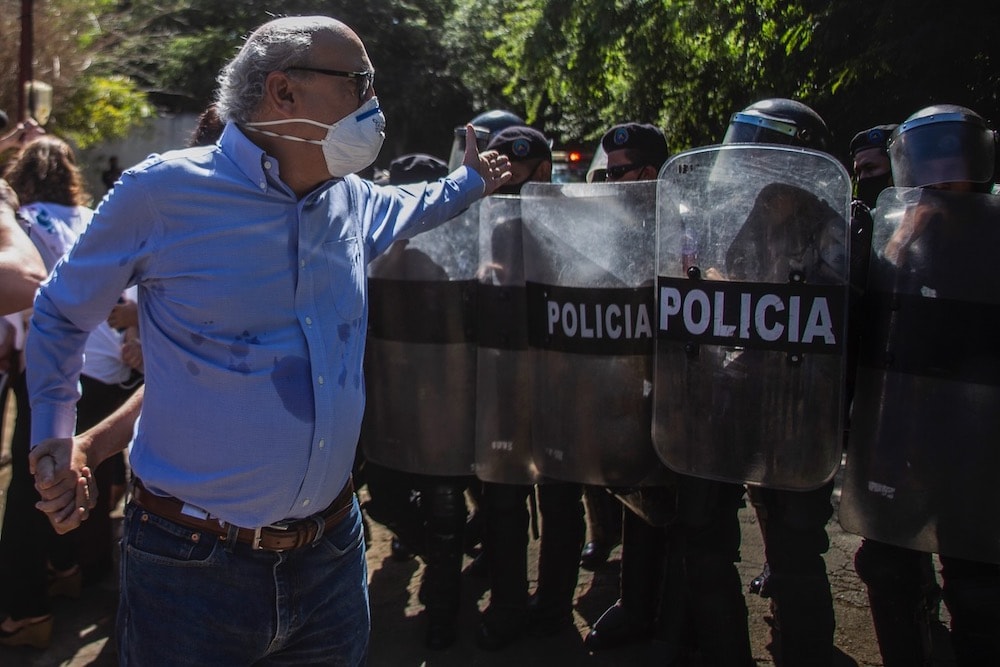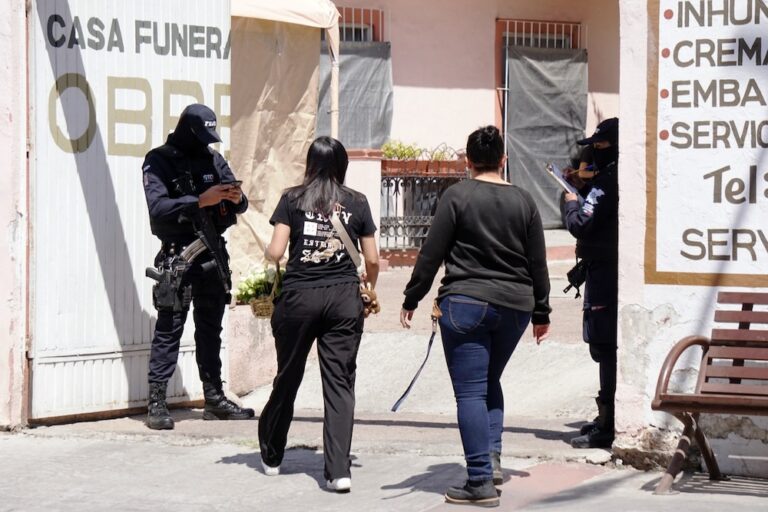In the context of a UNESCO event in Costa Rica, the Inter American Press Association organized a panel discussion to address the growing challenges of journalists forced to work outside of their home countries.
This statement was originally published on en.sipiapa.org on 8 April 2024.
The Inter American Press Association (IAPA) organized a panel discussion to address the growing challenges of journalism in exile. The event took place on April 2 in San José, Costa Rica, as part of the project “Supporting Media Spaces for Displaced Journalists,” launched by the International Program for the Development of Communication (PIDC) of the United Nations Educational, Scientific and Cultural Organization (UNESCO).
Moderated by IAPA President Roberto Rock and featuring its Executive Director Carlos Lauría, the activity brought together prominent journalists from the region who have been forced to operate in exile. Among them were the founder and director of Confidencial from Nicaragua, Carlos Fernando Chamorro; the Washington correspondent for the Salvadoran digital media outlet El Faro, José Luis Sanz; Guatemalan journalist José Luis Font, who hosts a weekly radio and TV analysis program from exile on his platform Con Criterio; Arlene Pérez, human rights editor for La Prensa newspaper from Nicaragua; and Cuban journalist Karla Pérez from ADN Cuba, who resides in Costa Rica. Also participating was Cristina Zahar, the Program Coordinator for the Latin America and the Caribbean Program at the Committee to Protect Journalists (CPJ).
The journalists discussed the challenges they face in their host countries, the obstacles to fulfilling their work amidst censorship, restrictions, lack of access to sources, and blockades in their home countries. Each panelist shared their personal experience or that of their media outlet in exile, and there was a discussion about the threats and risks faced by journalists and media outlets in their countries.
Additionally, they conducted a diagnosis of the economic difficulties faced by media operating in exile, while emphasizing the need for greater support from cooperation agencies, foundations, and technology companies to develop a sustainable business model. Strategies to protect journalists and ensure press freedom were analyzed, and there was reflection on the role of the international community, including organizations like UNESCO.
Beyond the panel discussion, the meeting served as a space for dialogue, action, and analysis on how to intensify and expand efforts to assist displaced journalists. With the participation of representatives from international cooperation, UN agencies, civil society organizations, media associations, journalist unions, and academia, the meeting took place at the Inter American Court of Human Rights’ hearing room.
“Freedom of expression is the cornerstone of our democracy, and efforts are required in all areas, including the judiciary, to safeguard journalists’ security. That is why we celebrate the development of this UNESCO-led initiative to bring together different actors at the same table to join forces,” said Judge Nancy Hernández López, President of the Court.
One of the project’s recommendations is the need to provide a platform for coordinating support mechanisms for displaced journalists with a multi-stakeholder and coalition-based approach, involving donor countries, UN agencies, civil society organizations, academic institutions, media organizations, and journalist associations.
During the meeting, the document “Journalists in Situations of Displacement in Latin America and the Caribbean: Needs Assessment and Recommendations for Action” was presented, addressing the complex issues faced by media professionals in the region. It includes an analysis of the needs of displaced journalists and recommendations for the implementation of a comprehensive response program, encompassing short-term policies as well as long-term actions in legal, psychosocial support, media sustainability, and security matters. This work was carried out in collaboration with the Society of Latin American Correspondents (SOCOLAC), journalist groups, civil society organizations, and academics from various Latin American countries.
Throughout the day, collaboration ties were strengthened, and concrete commitments were made to continue promoting initiatives that guarantee the safety and well-being of displaced and exiled journalists in the region. In the coordination meeting, moderated by Rosa Gonzalez, Regional Communication and Information Advisor for UNESCO for Latin America and the Caribbean, the IAPA referred to the entity’s ambition to create an inter-american network that provides comprehensive support to displaced reporters and media, under the supervision of the IAPA’s Exiled Journalism Subcommittee, chaired by Juan Lorenzo Holmann.
Furthermore, various initiatives in different stages of fulfillment were mentioned: development of comprehensive support programs for displaced journalists in Latin America and the Caribbean (UNESCO, multi-actor); psychosocial support for displaced journalists: launch of the Working Group on Comprehensive Security and Resilience of Displaced Journalists (UNESCO); consultation process regarding displaced journalists, by the Special Rapporteurship on Freedom of Expression of the Inter-American Commission on Human Rights (IACHR); creation of spaces for freedom in San José, Costa Rica (Deutsche Welle Akademie and IPLEX); regional press accreditation for displaced journalists (FEPALC); promotion of a model law on Journalist Safety (SOCOLAC); guidelines on legal measures for resettlement in Costa Rica, Mexico, and the United States (Institute for War & Peace Reporting), and research on displaced journalists in Latin America and the Caribbean (University of Costa Rica, Heinrich Böll Foundation).



